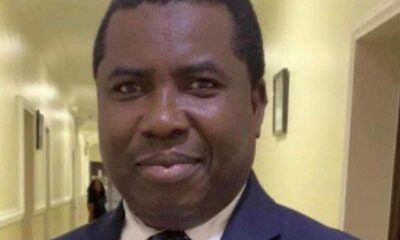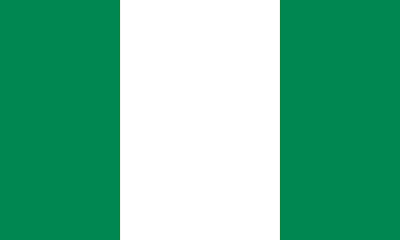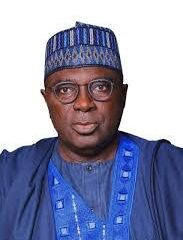Editorial
DEMOCRACY DAY: WHERE NIGERIA’S OPPOSITION LOST THE PLOT

Daily Courier Editorial | June 12, 2025
As Nigeria marks yet another Democracy Day commemorating the sacrifices of June 12, 1993, and celebrating 26 years of unbroken civilian rule. It is imperative to examine not only the triumphs of electoral transitions but also the fragility of our democratic culture. At the heart of any vibrant democracy lies a responsible, visionary, and ideologically rooted opposition. Unfortunately, Nigeria’s political opposition since 2015 has largely failed in this regard.
A Faltering PDP: From Ruling Party to Rudderless Opposition
Since losing the presidency to the All Progressives Congress (APC) in 2015, the People’s Democratic Party (PDP) once Africa’s largest political party, has struggled to reinvent itself. Rather than using the loss as an opportunity for internal reform, ideological recalibration, and institutional strengthening, the PDP descended into factional squabbles, personality cults, and elite capture.
Instead of building a shadow government or articulating alternative policies that challenge the APC on substance, the PDP has often resorted to blame games, opportunism, and reactionary politics. Press conferences replaced policy dialogues, while internal democracy was sacrificed on the altar of godfatherism and moneybags politics. The party that once governed for 16 years now often operates without a clear national agenda or an inspiring national figure that can galvanize public confidence.
Contrast this with what the APC accomplished while in opposition. Between 2013 and 2015, the then-opposition coalition undertook a robust political strategy, combining street-level mobilization with strong media engagement, issue-based messaging, and a unifying anti-corruption narrative. It functioned like a government-in-waiting—with regional governors, a professional communications team, and a clearly articulated roadmap that ultimately convinced Nigerians to give them a chance.
MORE STORIES: https://dailycourier.com.ng/us-evacuates-personnel-from-middle-east-as-tension-boils-between-israel-and-iran/
Labour Party: A Wasted Electoral Opportunity
The 2023 general elections saw the meteoric rise of the Labour Party (LP), riding on the back of the youth-led Obidient movement and the charisma of its presidential candidate, Peter Obi. The party shook Nigeria’s electoral landscape, especially in urban centers, displacing entrenched players in traditional strongholds. However, what followed that electoral surprise was a disappointing failure to consolidate.
Rather than evolve into a structured political force, the Labour Party succumbed to infighting, leadership crises, and strategic incoherence. It failed to establish a policy research arm, failed to build a national grassroots base, and quickly became fixated on post-election litigations rather than long-term party building. What could have matured into a formidable third force fizzled into yet another personality-driven platform lacking ideological depth.
The Cost of Hollow Opposition
A democracy without a strong opposition is a weakened democracy. The Nigerian opposition’s failure to provide coherent scrutiny, credible policy alternatives, and a structured party system has granted the ruling APC a free rein. Without being held to account, the government faces less pressure to deliver on reforms or maintain transparency. This void also feeds public apathy and cynicism, eroding the very civic participation that sustains democratic life.
Nigeria’s opposition parties have been consistently hijacked by moneybags, turning parties into electoral vehicles for personal ambition rather than institutions of public service. In the absence of core ideology whether progressive, conservative, social democratic, or liberal; parties have become indistinguishable, swapping members without consequence, and further confusing the electorate.
Lessons from Mature Democracies
In mature democracies like the United Kingdom and the United States, opposition parties function as shadow governments. In the UK, the Labour or Conservative Party in opposition routinely offers alternative budgets, hosts policy think tanks, and assigns shadow ministers for every government portfolio. This ensures constructive scrutiny and policy continuity.
In the U.S., even when out of power, parties like the Democrats or Republicans continue to shape national discourse through strong media presence, legislative resistance, and public engagement. These systems thrive on ideology, structure, discipline, and long-term vision not merely election-time mobilization.
A Way Forward
If Nigeria’s democracy is to deepen and survive, opposition parties must go back to the drawing board. They must:
• Build internal party structures beyond electoral cycles.
• Invest in leadership training, youth inclusion, and issue-based engagement.
• Articulate coherent ideologies and policy alternatives that Nigerians can identify with.
• Establish shadow cabinets to hold government accountable in real time.
• Resist capture by money and return to value-driven politics.
https://dailycourierng.blogspot.com/2024/12/impi-decries-unwarranted-attacks-on-nbs.html
Opposition should be more than mere criticism; it should be the conscience of the nation, the incubator of fresh ideas, and the mirror through which power is responsibly reflected.
Conclusion
As we celebrate Democracy Day, let us not only honor the heroes of June 12 but also reflect on the essential roles we each must play to sustain this hard-earned freedom. The government must be responsive but the opposition must be responsible. If democracy is to thrive in Nigeria, we must demand more than just elections; we must demand performance, especially from those who seek to replace those in power.
The price of liberty is eternal vigilance, but it must be shared across both aisles.

















